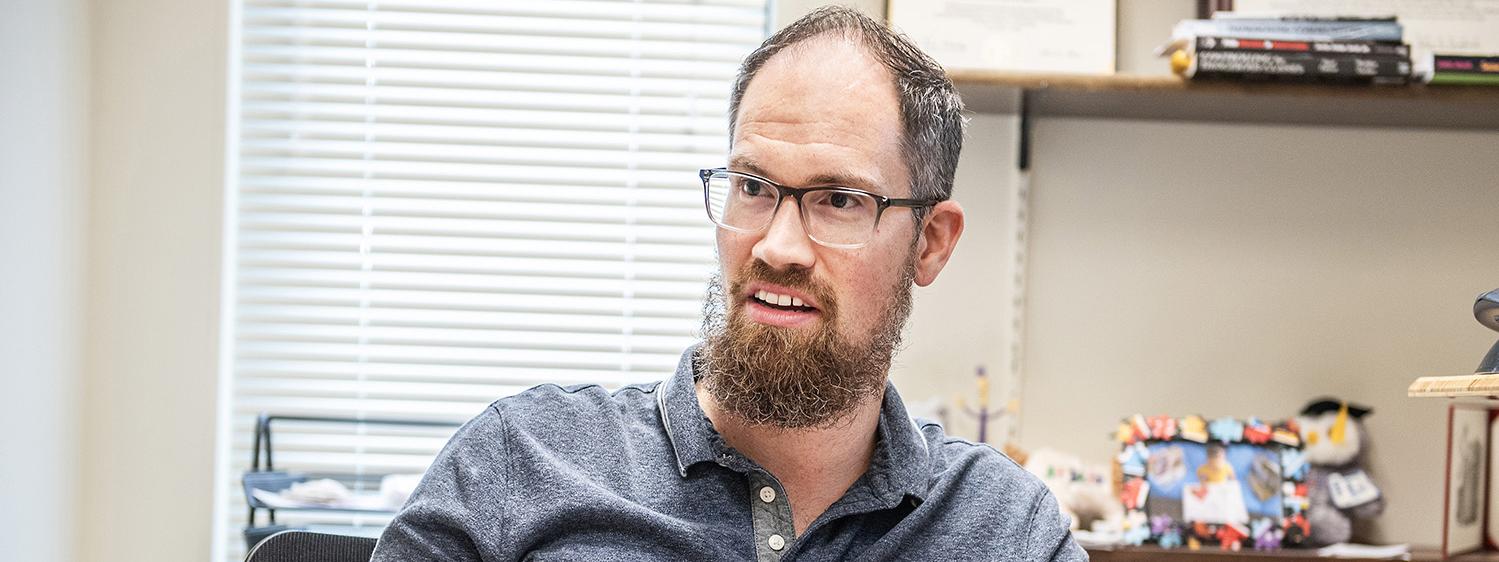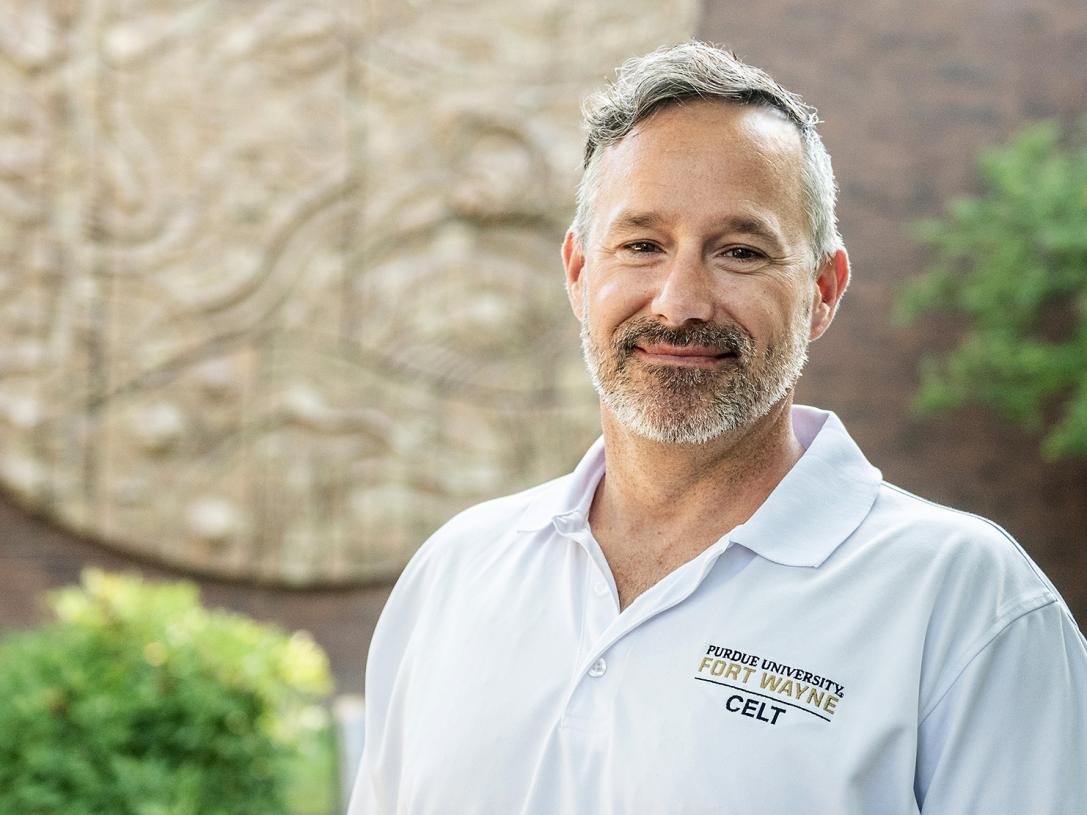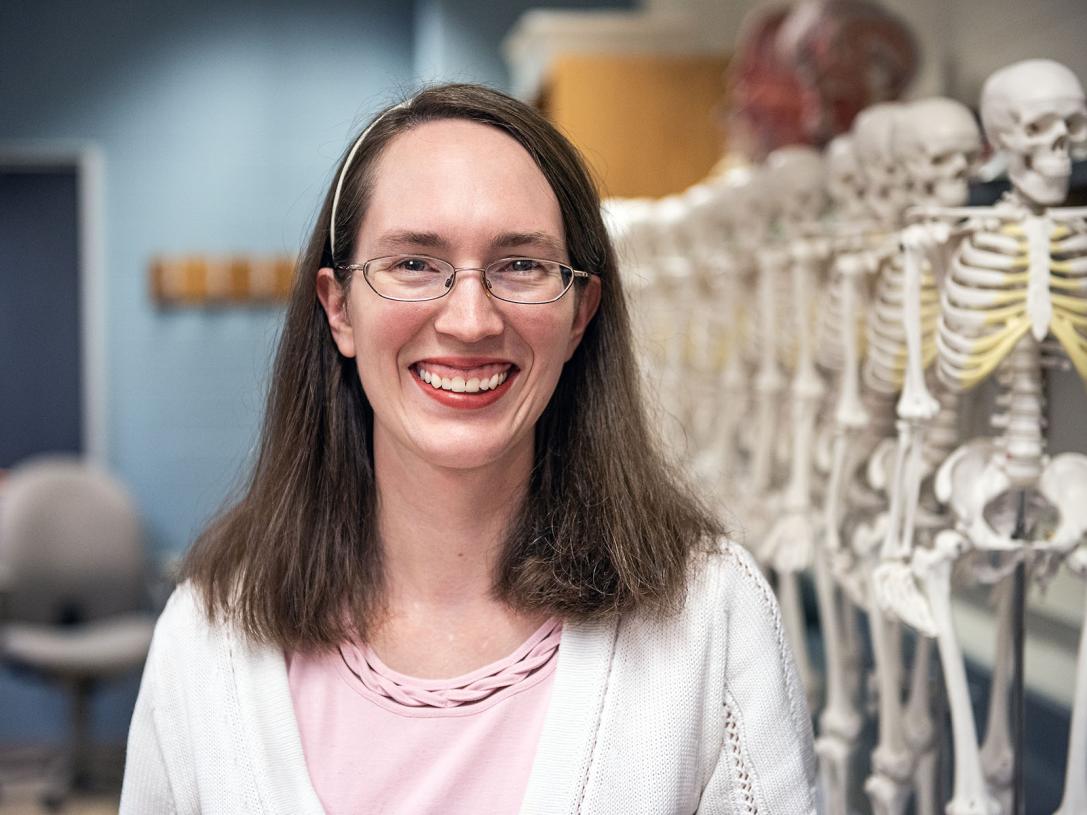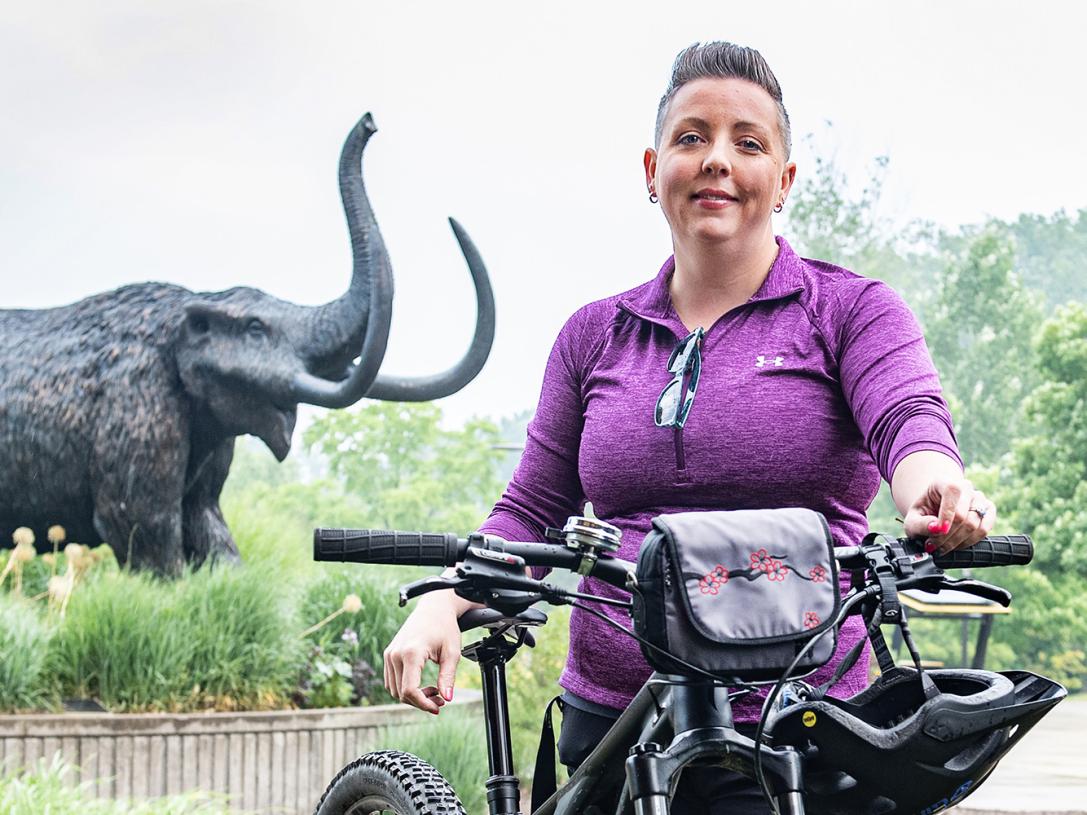
Mastodon Memories: Daniel Patten
This summer series explores the campus experiences of current PFW faculty and staff who are also alumni.
By Blake Sebring
August 3, 2023
Daniel Patten, B.A. Psychology ’09; B.A. Sociology ’10
Assistant professor of criminal justice in the Department of Criminal Justice and Public Administration
Despite having a varied professional background that includes stints in Virginia, Michigan, and Texas, Daniel Patten wanted to come home to be closer to family and friends, and returned to PFW two years ago to teach criminal justice.
Where are you from and why did you choose to go to school here?
DP: I am from Fort Wayne and went to North Side. I’m a single child of a single parent. I finished fifth in my class, had strong SAT scores, and got a full-ride scholarship offer to come here. So, the need to not be a financial strain on my mom was important. I had a chance to go to IU-Bloomington, but I felt that would be too big of a distraction, too fun, and I wanted to do well academically.
What car were you driving at the time?
DP: After my first car in high school, a red 1992 Chevy Caprice, was totaled when I was rear-ended, I was driving a 1999 Chrysler LHS – a nicer car than I’ve ever driven, still to this day. It had leather, heated seats and a sports engine. It was like a maroonish purple. I worked at Nissan Infinity as a porter/detailer my senior year in high school and it was the car of one of the salesmen, and I bought it from him for what I felt was a decent price.
Why did you pick your major?
DP: At first, I was interested in being a therapist. I wanted to work with everyday people who were having troubles. Then I got really interested in sociology, which allowed me to become a therapist for society, helping thousands of people rather than simply the few I would come in contact with in my therapy practice.
How did attending school here change your life?
DP: I want to know this answer for my students, too. It’s hard to pinpoint even for me, and I got a lot out of it. I think it changed my life tremendously, but it’s hard to pinpoint exactly what.
What kind of music were you listening to and who were your favorite artists or bands?
DP: It hasn’t changed much. I actually discovered my favorite artist in college and he is still my favorite: Robi Draco Rosa, a Puerto Rican musician. Part of it I took Spanish and he sang in Spanish and English and that helped. It depends on the occasion. I played basketball, so I listened to rap and hip hop a lot. Tupac and Eminem were two of my favorites. Luther Vandross is probably my favorite vocalist; Babyface, Brian McKnight, and John Legend more recently.
What was your favorite area of research?
DP: Crimes of the powerful was always, and still is, my favorite area of research. Part of what sparked it were 9/11 conspiracy theories because I found they were asking really good questions. I still think that today. Now these are really important questions that we often dismiss because we label people as crazy or mistaken because of their leaps to conclusions without sufficient evidence.
Were you a member of any student organizations?
DP: I was in the psychology and the sociology clubs.
Did you have any favorite professors and why?
DP: As an intellectual, Peter Iadicola from sociology was my favorite. Christopher Bradley was the best teacher I had, and from psychology the one that I got the closest with is David Young.
Why did you want to come back to the university?
DL: It’s because I’m from here, and my social network is here. I’m the only one of all my closest friends to get a college degree, much less a Ph.D. Most of them are here, and my mom lives here, and my wife’s parents are in Indianapolis.
How has PFW changed for the better?
DL: They built more dorms so that is somewhat tangible. I have been a big proponent of building more of a student life on campus, but you have to get buy-in too from students. I think there’s been a shifting of the tide and there’s more emphasis on creating a culture of a campus environment, to recognize that this is one of the most important things as part of being a campus.




